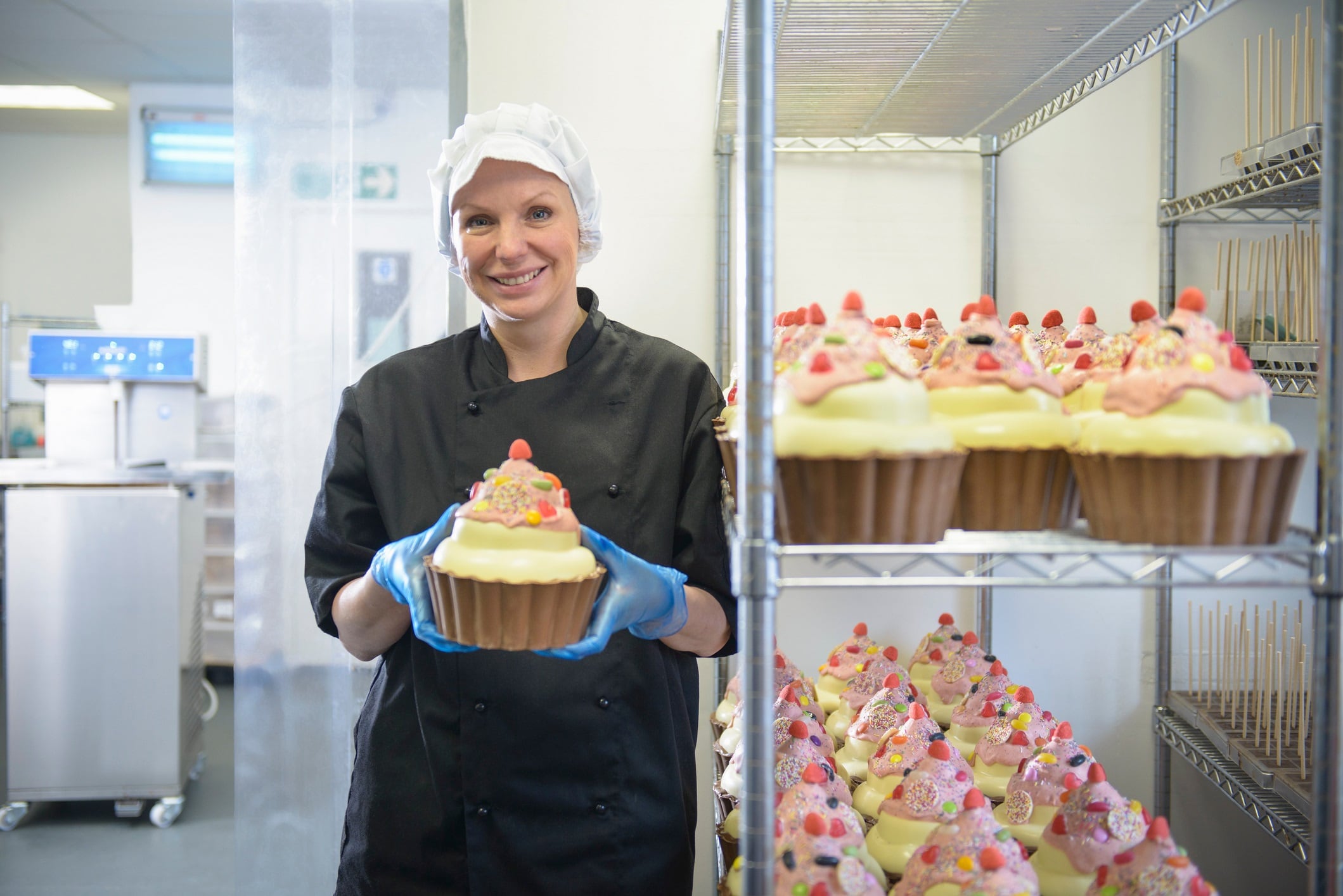Scaling-up is a major undertaking for any brand, big or small. You need to know why you’re doing it, when to do it and, most importantly, how to do it.
We answer the big questions, to help you advance your business to the next level.
Why scale-up?
Scaling-up is the process of taking your brand to the next level. This will involve financial investment and an investment of your time.
“Scaling-up does come at a cost,” says Tessa Reed, founder of All Dressed Up Dressings.
It will also likely involve an element of risk, as there’s no guarantees the move will be successful.
“You have to upfront the cost of your first production run, bottles, labels etc.,” says Reed. “There’s always a risk that your production partner won’t match the quality that you were achieving before, or that you’ll be left with lots of stock that you’re unable to sell.”
But, while there are undoubtedly risks involved, and some hefty costs, there can also be significant rewards.
“It enables you to move quicker and have conversations that you may not have been able to have before,” says Reed. “Without scaling-up, we would never have been able to fulfil orders for our larger accounts such as Wholefoods, Bayley & Sage and Ocado.”
In short, scaling up creates new opportunities for your business and your brand.
However, it’s also important to remember that you don’t have to scale-up at all. You may prefer to stay as a small business, serving a select group of customers. Don’t feel pressured into scaling-up, just because you feel you should or because one of your competitors is doing it. Do what’s right for you and your business.
But if you decide you do want to scale-up, then here’s how to do it.

When to scale-up?
The first and most important response to this question is, are you and your brand ready to scale-up?
“Don’t try and run before you can walk,” says Reed. “I appreciate it’s such a cliche thing to say, but it’s really important to build strong foundations and prepare yourself with as much knowledge as possible before scaling-up. Create strong building blocks and make sure your current listings are working really well before chasing after the next one.”
You also need to do your customer research to ensure the demand is there to satisfy increased production.
“It’s crucial to know that there’s demand for your product,” agrees Reed. “For me, it was really important to prove the concept initially, before having the confidence to proceed. I secured some early listings in farm shops, delis and independents and we quickly saw a high return on sales. I was also getting a lot of enquiries, via Instagram, from people wanting to buy more, so I knew the demand was there.”
Finally, and most importantly, do you have the funding to support the transition, without compromising the business? Discussing your plans with your bank, before making any firm decisions, is the quickest way to establish this. They’ll be able to help you budget and tell you, in advance, if they’d be willing to provide a business loan, if required.

How to scale-up
“Scaling-up requires planning, funding, and the right systems, staff, processes, technology, and partners,” says Anita Campbell, CEO of Small Business Trends, LLC.”
In other words, in order to successfully scale-up, you need to implement the infrastructure to support growth.
This will vary from business to business, so it’s important for you to evaluate what this means for you. A great way to go about this is to speak with a business consultant.
Business consultants can help you to not only evaluate what your business needs to do in order to scale-up, but can also help guide you through the process. But choose that consultant carefully as you’ll be financially invested in them and they’ll have an influence over the success of your company.
“Look at their LinkedIn, get case studies from them, tie your contract to results and trust your instincts,” says Daniela Busseni, senior consultant at IGD
Another important aspect of scaling up is to research where you plan to distribute your product at scale. Selling to local farm shops is very different to selling to a supermarket chain, and every detail needs to be carefully considered, even packaging size.
“Do your research,” says Stephen Minall, founder of FDReviews. “Go into supermarkets, look at the shelves, look at the shelf space to make sure your product actually fits the shelf height. I’ve seen hundreds of brands where the bottle’s the wrong size or the jam jar looks lovely but you can’t get the product out.”
It’s also really important to set goals for what you plan to achieve in the short and long term, when scaling-up. Set a deadline for recruiting new staff (if needed), set a deadline for agreeing a production schedule, set a deadline for going into production etc.
“Get some KPIs in place so you can measure your progress,” suggests Dan Barron, non-executive director at Just So Care Ltd.
You might not meet all of those deadlines, but you need to have a plan to aim towards.
And be open to change. Your circumstances may alter throughout the process - for example, you may need to change the formulation of a product for cost reasons - but if you can adapt quickly to those changes then you have a greater chance of success. But, most importantly, “make those changes whilst you still have the budget to make them,” says Barron.
Good luck!
Read more: FoodNavigator’s how-to guide for start-up success





